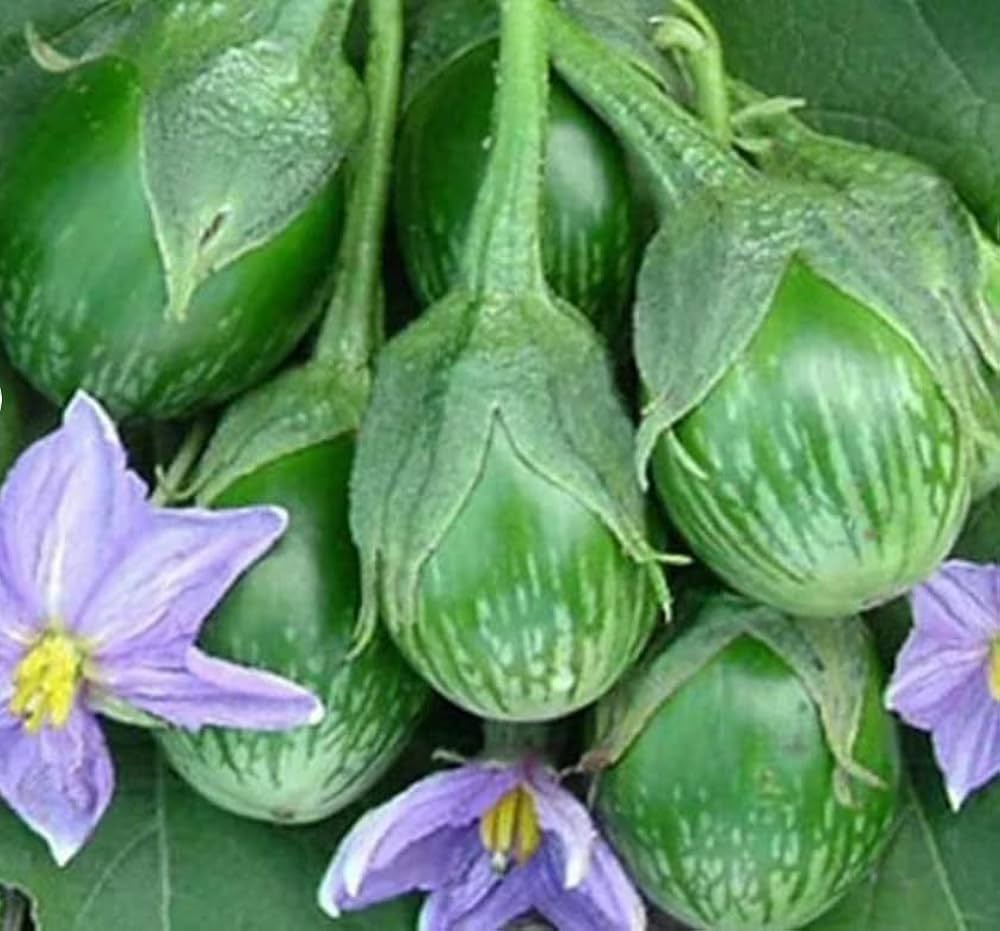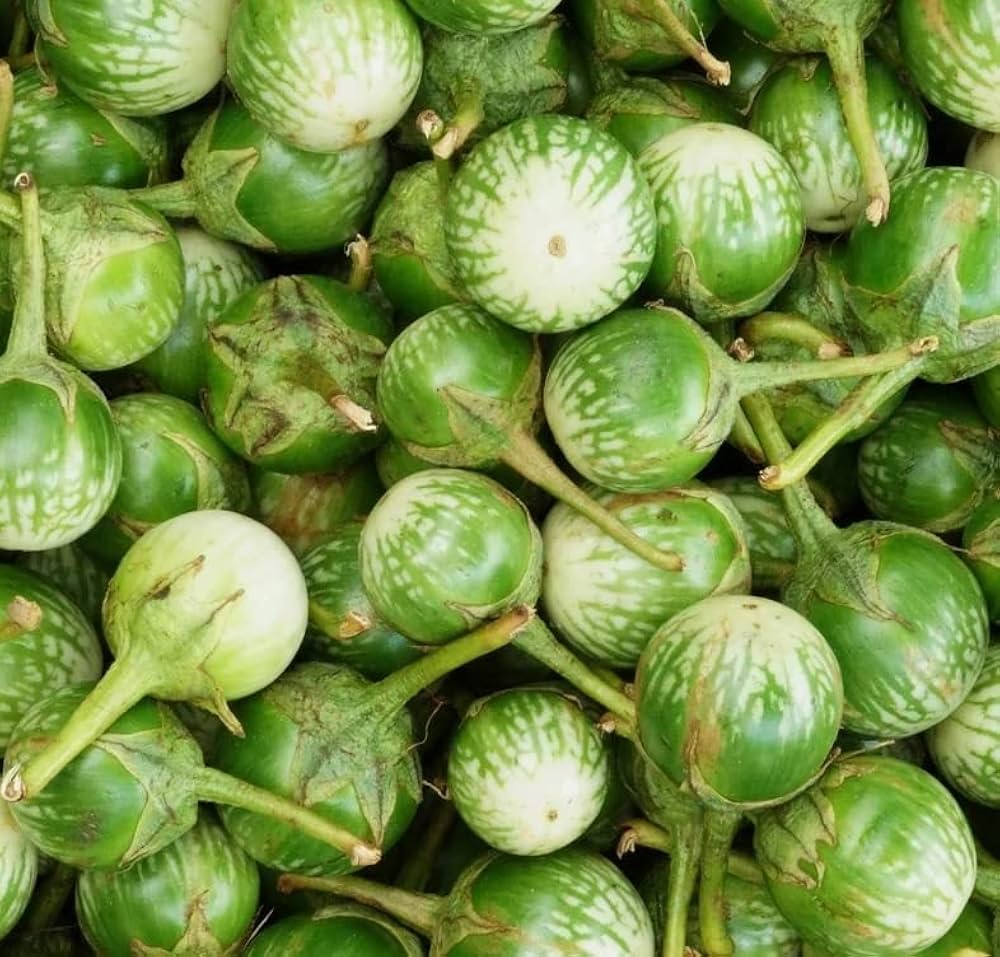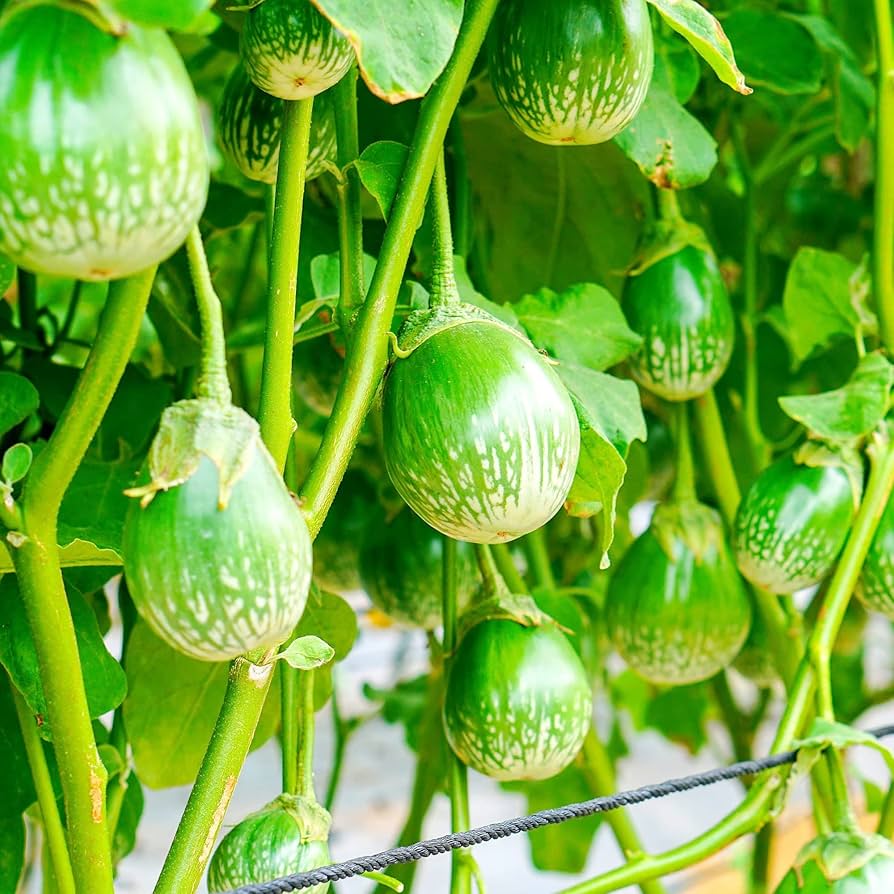Thai Eggplant Solanum Melongena Vegetable Seeds for Planting in Containers and Kitchen Garden Spaces
Couldn't load pickup availability
Description
Thai Eggplant Seeds
Characteristics and Uses of Thai Eggplant Plants
Thai eggplant, also known as Thai green eggplant or brinjal, is a unique variety prized for its small, round shape and vibrant green color. These non-GMO seeds produce compact plants that yield numerous fruits, typically about the size of a golf ball. Thai eggplants have a slightly bitter flavor that mellows when cooked, making them a popular ingredient in various Asian dishes, particularly in curries and stir-fries. Their distinctive appearance and taste make them a favorite among chefs and home cooks looking to add authenticity to their culinary creations.
Growing Conditions for Thai Eggplant Plants
- Light Requirements: Prefers full sun, requiring at least 6-8 hours of direct sunlight each day.
- Soil Type: Thrives in well-draining, fertile soil enriched with organic matter for optimal growth.
- Temperature: Best suited for warm temperatures, ideally between 70°F and 85°F for germination and growth.
Planting Tips for Thai Eggplant
- Timing: Sow seeds indoors 8-weeks before the last frost date or directly outdoors after the danger of frost has passed.
- Depth: Plant seeds about 1/inch deep in the soil, ensuring they are lightly covered.
- Spacing: Space plants 18-2inches apart to allow for proper air circulation and growth.
Watering Instructions and Tips
- Watering Frequency: Water regularly, providing about 1 inch of water per week, especially during dry spells.
- Mulching: Apply a layer of mulch around the base to help retain moisture and suppress weeds.
- Signs of Underwatering: Look for wilting leaves or dry soil as indicators that your plants need more water.
Growing Zones
Thai eggplant is well-suited for USDA zones 9- and can adapt to various global climates, making it a versatile choice for gardeners looking to cultivate this flavorful vegetable.
Key Benefits & Uses
- Culinary Versatility: Adds a unique flavor and texture to a variety of dishes, enhancing the overall taste.
- Nutritional Value: Rich in vitamins and minerals, including vitamins A and C, potassium, and dietary fiber.
- High Yield: Produces a generous harvest, making it perfect for home gardeners and culinary enthusiasts.
Best Uses in the Garden & Landscape
- Vegetable Gardens: A staple in any vegetable garden, providing delicious produce for various culinary uses.
- Container Gardening: Suitable for growing in pots or containers, making them ideal for small spaces.
- Companion Planting: Works well with other vegetables, helping to deter pests and improve growth.
Conclusion
Thai eggplant seeds from bijaseeds are an excellent choice for gardeners looking to cultivate a unique and flavorful vegetable. With their distinctive taste and numerous benefits, these non-GMO seeds are perfect for enhancing any outdoor space. bijaseeds is a big, trusted name in the seed world, offering a wide range of high-quality, non-GMO varieties to gardeners everywhere.
FAQ
How do I grow Thai eggplant from seeds?
To grow Thai eggplant from seeds, start by planting them in well-draining soil in a sunny location. Water regularly, allowing the soil to dry slightly between waterings for optimal growth.
When is the best time to plant Thai eggplant seeds?
The best time to plant Thai eggplant seeds is in early spring after the last frost. If starting indoors, aim for 8-weeks before the last frost date to ensure healthy seedlings.
Are Thai eggplant plants difficult to grow?
Thai eggplant plants are relatively easy to grow, making them suitable for gardeners of all skill levels. With proper care, including adequate sunlight, watering, and spacing, they can thrive and produce a bountiful harvest.







